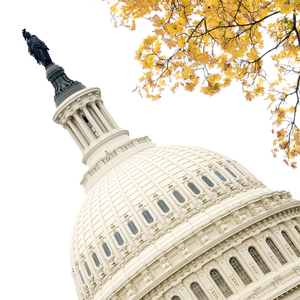Lawmakers introduce comprehensive CO2 infrastructure bill

March 17, 2021
BY Erin Krueger
Sens. Chris Coons, D-Del., and Bill Cassidy, R-La., and Reps. Marc Veasey, D-Texas, and David McKinley, R-W.V., on March 17 introduced the Storing CO2 and Lowering Emissions (SCALE) Act, a comprehensive CO2 infrastructure package.
The bill aims to support the buildout of infrastructure to transport CO2 from the sites of capture locations to where it can either be utilized in manufacturing or sequestered underground.
An analysis released as part of the Decarb America Project shows provisions of the SCALE Act could create approximately 13,000 direct and indirect jobs each year during its five-year authorization. That figure does not include the thousands of additional jobs that would be created by retrofitting facilities that emit CO2 or by building direct air capture plants.
Advertisement
Advertisement
The bill would establish the CO2 Infrastructure Finance and Innovation Act program, which would provide flexible, low-interest loans for CO2 transport infrastructure projects and grants for initial excess capacity on new infrastructure to facilitate future growth. Grants would also be made available for front-end engineering design (FEED) studies for CO2 transport infrastructure.
The bill would also build upon the U.S. Department of Energy’s existing CarbonSAFE program to provide cost sharing for deployment of commercial-scale saline geologic CO2 storage projects. The program would give priority to larger, commercial saline geologic storage projects that could serve as hubs for storing CO2 from multiple carbon capture facilities.
In addition, the legislation would authorize increased funding to the U.S. EPA for permitting Class VI CO2 storage wells in saline geologic formations and provide grants for states to establish their own Class VI permitting programs to ensure rigorous and efficient CO2 geologic storage site permitting.
Advertisement
Advertisement
The bill also provides grants to state and local governments for procuring CO2 utilization products and support for state and local programs that create demand for materials, fuels and other products made from captured carbon. Finally, it adds the objective of developing standards and certifications for products that use CO2 to DOE’s carbon utilization program.
The Carbon Capture Coalition has endorsed the SCALE Act. “The Carbon Capture Coalition commends these members for their foresight and recognition of the essential role that interconnected regional CO2 transport and storage infrastructure must play in putting our nation on a path to reaching net-zero emissions by midcentury,” said Coalition Director Brad Crabtree. “This common sense, bipartisan legislation is designed to drive the billions of dollars in private investment in infrastructure required to accelerate and scale up the deployment of carbon capture, removal and utilization from our nation’s industrial facilities, power plants and future large-scale direct air capture facilities. Congressional leaders should incorporate the provisions of the SCALE Act into the next major legislative package now being developed to address COVID economic recovery, infrastructure and climate.”
Additional information on the bill is available on Coons’ website.
Related Stories
The U.S. Energy Information Administration maintained its forecast for 2025 and 2026 biodiesel, renewable diesel and sustainable aviation fuel (SAF) production in its latest Short-Term Energy Outlook, released July 8.
XCF Global Inc. on July 10 shared its strategic plan to invest close to $1 billion in developing a network of SAF production facilities, expanding its U.S. footprint, and advancing its international growth strategy.
U.S. fuel ethanol capacity fell slightly in April, while biodiesel and renewable diesel capacity held steady, according to data released by the U.S. EIA on June 30. Feedstock consumption was down when compared to the previous month.
XCF Global Inc. on July 8 provided a production update on its flagship New Rise Reno facility, underscoring that the plant has successfully produced SAF, renewable diesel, and renewable naphtha during its initial ramp-up.
The U.S. EPA on July 8 hosted virtual public hearing to gather input on the agency’s recently released proposed rule to set 2026 and 2027 RFS RVOs. Members of the biofuel industry were among those to offer testimony during the event.
Upcoming Events










